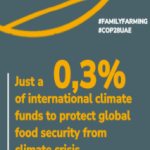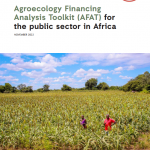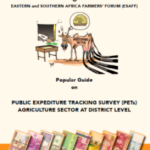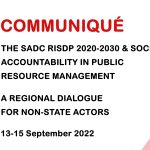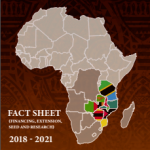Southern Africa Trust weighs in 900,000 ZAR support to ESAFF members in southern Africa
2/2/2013
Members of ESAFF in Southern Africa will benefit from the support of 900,000 Rands from the Southern Africa Trust, (SAT). Under the project Strengthening organisational and technical capacity of smallholder farmers to hold SADC and member states accountable for sustainable agriculture and food security in Southern Africa.
Through the project ESAFF will work with members in Tanzania (MVIWATA); Malawi (NASFAM); Zimbabwe (ZIMSOF) and ESAFF Zambia as well as Seychelles (SEYFA), Madagascar (CPM), ESAFF Lesotho and ESAFF South Africa. Others are Mozambique, Botswana and Swaziland
The project covers directly 9 SADC member states and indirectly 2 member states to make 11 members (78.6%) covered out of 14. Hence this project is literally a regional project. By addressing agriculture policies at SADC level, the spill over effect covers every citizen in the region
At impact level, Small scale farmers will work to own participation in policy processes that will make policy practises and implementations (SADC Regional Agriculture Policy – SADC RAP and SADC COMPACT) respond to their needs and aspiration.
The vice chairperson of ESAFF Ms. Elizabeth Mpofu says, Agriculture employs 60-80% of the citizens in SADC… any improvement in agriculture will lead to improved economy of smallholder farmers which will directly lead to poverty reduction through growth, industries (raw materials) foreign income, low inflation due to food availability and peace in countries. She added that “smallholder women farmers bare the blunt of bad policy implementation.
ESAFF is a farmer led, farmer owned and farmer initiated. The project is led by small scale farmers who constitutes the majority of the poor and marginalised in the region. Women farmers, the youth, livestock keepers and mountains farmers’ voice will make part and parcel of this project

















